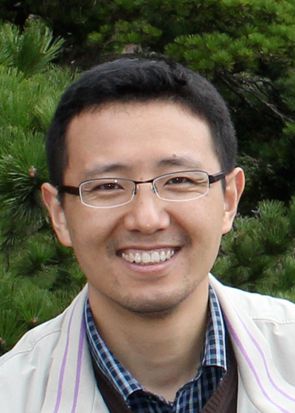Principal investigatorName: Lijian HuiDistinguished Adjunct Professor from CAS , PhD, Distinguished Adjunct Professor from CAS
Position: Affiliation: School of Life Science and Technology, Institute of Biochemistry and Cell Biology, Shanghai Institutes for Biological Sciences, CAS
Honor: Education Background:
Working Experience:
Group Introduction Research Area:
Liver Cancer, Cirrhosis, Cellular Signaling, the MAPK Pathway, Targeted Therapy
Research Interests:
To understand the mechanistic regulation underlying tumorigenesis of normal cells is a long-term interest of my scientific research. Recently, taken hepatocytes as the experimental system, my lab has initiated studies on cell lineage conversion, specifically focusing on induction of functional hepatocyte-like cells from cells of non-hepatic origin. Striving to understand these two seemingly different phenomena, we slowly find ourselves in querying the essential scientific question: How is cell identity maintained through preventing the conversion of terminally differentiated cells to other cell types, including transdifferentiation to different lineages and transformation to tumor cells? We wish that with the efforts to address this question we would eventually contribute to the development of novel therapies for liver diseases and cancers. 1. The mechanism of tumorigenic transformation of hepatocytess Epidemiological studies of human liver cancers indicate that genetic and epigenetic alterations are accumulated in a multi-stage manner. Advances in understanding molecular aberrations in malignant liver cancers have led to the development of efficient targeted therapies. On the other hand, preventive therapeutic approaches have been proposed to intervene at the initial phase of liver tumorigenesis (Nature Cell Biology, 2012). The critical step for developing effective preventive therapies is to identify targetable molecules and pathways responsible for liver cancer initiation. 2. Generating hepatocyte-like cells via transdifferentiation We have previously shown that mouse fibroblasts are directly converted into induced hepatocyte-like (iHep) cells by Foxa3, Gata4 and Hnf1a expression and p19Arf inactivation (Nature, 2011). We are now working on converting non-hepatic human cells into hepatocytes by defined transcription factors, which could be used for generation of potential sources of hepatocytes for disease modeling, transplantation, and tissue engineering independent of donor organs. 3. Cell identity maintenance – linking the tumorigenesis and lineage conversion During the generation of iHep cells, we observed an extensive cell death, senescence and proliferation arrest in wild-type fibroblasts upon overexpression of the 3 hepatic transcription factors. Cell fate conversion is a dramatic process that is extremely rare in nature. It is conceivable that cells with defined identity should be preserved to maintain the physiological function of a given tissue. It is interesting that the p19Arf/p53 pathway is found to suppress both tumorigenesis and cell fate conversion. We speculate that the p19Arf/p53 pathway may be employed by normal cells as a common mechanism to maintain the cell identity. Research AchievementRepresentative Publications (*First Author, # Corresponding Author)
MonographPatentFundingAwardsResearch AchievementGroup Member and Photo |



